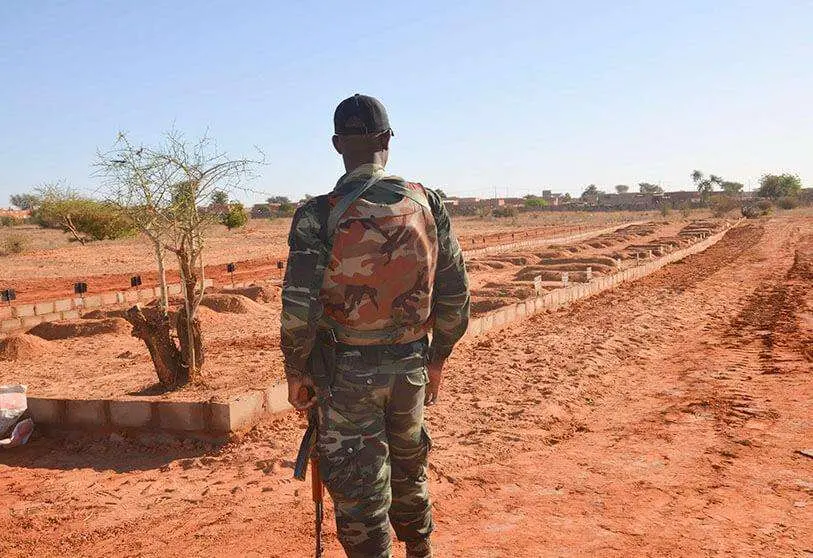New EU mission in Niger: lessons learned

The European Council within the Common Security and Defence Policy (CSDP), at the request of the Nigerien authorities, has launched a Military Partnership Mission with Niger called EUMPM Niger to strengthen the capacity of the Nigerien Armed Forces in the fight against jihadist terrorism.
EUMPM Niger will in particular support the establishment of the Armed Forces Technician Training Centre and provide expert advice and training on request to specialists of the Niger Armed Forces and support the creation of a new communication and command assistance battalion. The mandate of the mission, drawn up in close consultation with the Nigerien authorities, will initially last for three years, and the financial reference amount for common costs for this period will be EUR 27.3 million.
EUMPM Niger will coordinate closely with EUCAP Sahel Niger to reinforce interoperability between Niger's security and defence forces. The Mission will also coordinate its activities with Member States' activities in Niger and, as appropriate, with like-minded partners supporting the Niger Armed Forces capacity building plan.
This is a very ambitious EU Mission that we will see if it achieves its objectives and if it does not make the same mistakes as other military missions deployed in the Sahel, such as EUTM Mali, from which countries like France and Germany have already exited.
Strategically, Niger borders Algeria, Mali, Burkina Faso, Libya, Chad, Nigeria and Benin. Among the Sahel countries, it is the most stable country above Mali, Burkina Faso and Chad. It could therefore become the most stable country in the fight against terrorism in the Sahel, provided that it adopts socio-economic measures that satisfy the population. Niger is rich in resources such as uranium, gold, salt, silver phosphate and tin, which are extracted in industrial quantities that should benefit the civilian population.
Likewise, and despite its geographical location, Niger has managed to halt the advance of the jihadist threat from terrorist groups such as Boko Haram or the Daesh and al-Qaeda franchises in the Sahel.
It is worth bearing in mind that, despite its immense size, Niger is the largest country in West Africa, has a strong defence and security network, and invests heavily in security.
If we look at the right approach to fighting jihadist terrorism in the Sahel, it should always be carried out first at the local level and then at the regional level with international assistance in a coordinated way, but always at the local level and without making the mistakes of the past.
It should be remembered that hatred of the West, and especially of France and Europe, is spreading day by day throughout the Sahel, so that the idea circulating is that European policy in Africa is neither to halt the advance of jihadist terrorism nor for human rights or democracy, but rather to protect its interests, regardless of the regime, even the most bloodthirsty.
If there is a lesson to be taken into account, it is the need to take into account all the actors involved in the area, the protection and perception of the civilian population and local realities, a lesson that so far does not seem to have been taken into account.
As we have already noted, we find ourselves in a new international scenario of the fight against jihadist terrorism in the Sahel, where France, the EU and the US will move to countries such as Côte d'Ivoire and Niger to set up permanent bases.
However, this displacement towards the south of the Sahel could worsen the fight against jihadist terrorism, as Mali is strategically better located and is where a large part of the territory has been left free, especially the north, through which all the illicit trafficking of organised crime passes and where these terrorist groups are based, meaning that France, the US and the EU would be displaced further south of the Sahel and away from this strategic area.
From the lessons learned in recent years in the fight against terrorism in the Sahel, it is important to remember that there must be a coordinated strategy for the Sahel, not just a military strategy. The leaders of terrorist groups can be eliminated, but these groups are still there.
Other factors must be analysed, such as economic factors, the lack of control by states over their territory, a greater police presence at the local level, and various other elements that have not been taken into account. It is the absence of a state that allows these terrorist groups to gain territory. That is why these now failed states must be rebuilt in all areas, not just the military.
A new Strategy for the Sahel must be developed, not only from a military or Western perspective, but also by considering what the problems of the Sahel are and how to combat them in all areas. Focusing on working more and better at the local level in all aspects and in the fight against jihadist terrorism, relying more on air and intelligence resources.
The sum of capabilities and the coordination of all actors operating in the Sahel will be the only way to achieve stabilisation in the Sahel.
Similarly, the military solution alone cannot address the problem of jihadist terrorism and radicalisation in the Sahel. The strategy must be regional and multi-sectoral, based on the idea that African solutions must be offered to African problems, and where the West must go to help and not to impose or exploit as in the past. This will differentiate us as a new strategy vis-à-vis the civilian population, terrorist groups and groups like Wagner.

